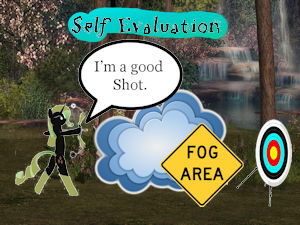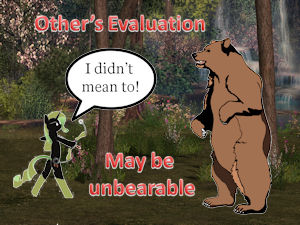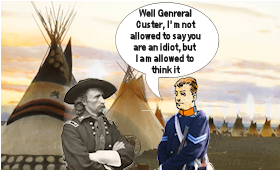Thinking Inaccuracies
A Guide for Common Thinking Mistakes
All of these explanations are very brief and if you want a fuller explanation either read You Are Not So Smart by David McRaney or visit his website https://youarenotsosmart.com/ You are Now Less Dumb is the sequel with more examples. The author has some very interesting studies. The author follows the philosophy of Materialism.
Dunning-Kruger Representativeness Heuristic Attention Procrastination Normalcy Bias Bystander Effect Brand Loyalty Argument from Authority Straw Man Fallacy Ad Hominem Fallacy Cult Indoc Group Think Affect Heuristic Self Serving Bias Spotlight Effect Third Person Effect Catharsis (venting) Misinformation Effect Conformity Extinction Burst Social Loafing Learned Helplessness The Moment Embodied Cognition Anchoring Effect Self Handicapping Consistency Bias Expectation Illusion of Control Fundamental Attribution Error
The Dunning-Kruger Effect - When you are making judgments and decisions about the world around you, you like to think that you are objective, logical, and capable of taking in and evaluating all the information that is available to you. Unfortunately, these biases sometimes trip us up, leading to poor decisions and bad judgments. This is called cognitive bias. Our minds use it to simplify making decisions with an overwhelming amount of input. In most cases this is helpful. When we are unaware we are doing it, it can create problems. The Dunning-Kruger Effect is a type of this cognitive bias.
The Dunning-Kruger Effect is about our ability to judge competence at doing tasks. Simply if we don't understand something we are much more likely to believe we are better at it than we really are. Often people who are poor at doing a skill are also poor judges of how competent they are at that skill. They also are not very skilled at judging other's abilities. They then rate themselves as above average. Nonviolent Communication seems to be involved in an exaggeration of this effect. Nonviolent Communication is very simple, but not necessarily easy. Everyone talks, very few people evaluate how well they talk. What is the standard anyway? What does nonviolent mean? Some who hear it say I am not violent, I don't hit people. How nonviolent is used in NVC means being loving with the absence of any ill will in thought, word or deed.
The standard I use to evaluate how well I speak is other's reactions or responses to what I say. I practice mediation with other mediator's and we give each other feedback on how connecting what we say is. This is where learning is most likely to occur. I have the intention to be practicing NVC. I am ready for feedback. The people I am practicing with also have the same intentions. I am also lowering the difficulty level by working on situations I am not attached to.
Other influences include using heuristics, or mental shortcuts that allow us to make decisions quickly, and our tendency to look for patterns even where they don't exist. This tendency to seek out patterns is how we make sense of the world, look for danger and pleasure.
What I am puzzled about is how do you let people know what their skill level is without them condemning themselves. If Nonviolent Communication is about being compassionate, then people mistakenly assume if they are not skilled at it they are not compassionate. When what it means is you have been educated to behave in a manner that does not demonstrate compassion.
Cognitive dissonance is when we believe one thing and experience another. For example we believe we are compassionate. When someone wants us to listen without giving advice, and we give advice and then they get angry, this creates confusion as our intent and result don't match. This often happens when the other person has not made a request letting us know they want us to just listen without giving advice. Without this input we feel anxious and our minds guess that they want advice.
One part of the research focused on people saying they were familiar with made up terms. In one study 90% of respondents claimed some knowledge of made up terms. The more respondents claimed they were familiar with a topic, the more likely they were to claim they were familiar with the made up terms. Dunning suggested that the trouble with ignorance is that it can "feel" just like wisdom or knowledge.
With easy tasks the Dunning-Kruger affect doesn't have much influence, people are good at predicting their ability with easy tasks. The more difficult the task, the more the affect. As people move from novice to amateur to expert to master, precisely where the transitions are between stages is difficult to evaluate. Especially self evaluation with no defined standard. Although novice to amateur might occur quickly with little effort, the transition to expert and master takes much more practice and with quality feedback on how you are progressing.
My personal experience is gaining skill with NVC came through first learning and practicing as much as possible. Teaching it became the next step. I had already had experience teaching adults as an instructor in the Navy and as an equipment maintenance trainer at Intel.
Where I saw the fastest increase in skill levels was when I took the year long mediation immersion training. This involved 3 four day retreats spread out over a year. In between the retreats we formed into groups and did 1 hour empathy buddy practice and 1.5 to 2 hours of mediation practice with groups of 3 to 6 people each week. We were trained how to give each other feedback. This feedback is what allowed the participants to fine tune their skills and get quality evaluation of their skills. Our feedback was to say what worked well first and then if asked, offer what could be done better. This peer practice was where most of the improvement in skills occurred.
The more difficult method of evaluating how well you are doing is people's response to your communications. This is also the riskier method as you might affect relationships and employment status. ![]()
Representativeness Heuristic - this would typically be called stereotyping. You are much more influenced by the story you make up about someone than what is actually going on. The book asks people questions which if you had just asked the math part of the question almost everyone would get it right. They add in a story and the math portion is completely ignored. Humans pass information through filters and aren't even aware of it. This is where observation skills are invaluable. The human desire to put labels on everything adds to this effect. Using the verb to be/is to make judgments correlates to violence in societies. ![]()
Attention - you believe your mind and eyes work together like a camera taking in all information before you. See http://www.theinvisiblegorilla.com/gorilla_experiment.html.
We are also blind to changes that occur that we aren't expecting. An experiment was done where students approached a tall desk to sign a consent form. The man ducked down and a different man appeared. Two thirds of subjects didn't notice it was a different person. Even though they could recall other details about the room. What is in your awareness in your mind is not the same as the outside world. Something to remember when making observations. ![]()
*Illusion of Transparency - you believe when you are feeling strong emotions others know what you are thinking and feeling. Nobody else knows your subjective experience and you overestimate how much others can interpret from your nonverbal cues. What is good is that you don't need to worry about what others think about you, they are probably caught up in wondering what you are thinking about them.
The NVC solution is to express your observation, feelings, needs and request so others know what is alive in you. According to Marshall, this is the most loving thing you can do. Unfortunately most of us are uncomfortable being vulnerable enough to express our OFNR in front of others. The best thing is to practice, practice, practice. Get empathy about what the fear is of being vulnerable. ![]()
Self-delusion . The misconception is you are a being of logic and reason . The truth is you are a being capable of logic and reason and often fall short of that ideal in predictable ways. Example of this study of a football game between Princeton and Dartmouth. Princeton had an undefeated season and the last Heisman trophy winning Ivy League quarterback . It was the final game of the season for both of them . The Dartmouth team broke the nose of the Princeton's quarterback . Shortly thereafter Princeton broke the leg of one of the Dartmouth players. Princeton ended up winning the game . After the game the college newspapers were vying to be the true report of what happened. A couple of psychologists decided they would show videos of the game to people associated with each collage. As you can probably guess people associated with Princeton thought that Dartmouth was the dirty team. The people from Dartmouth thought it was just a rough game.
The demographics of the two groups were very similar. The scientist wanted to see if watching the same video the two groups would see the same thing. They had forms so the participants could evaluate as they watched the game. Of course what they got was very biased results apparently solely influenced by which college they were aligned with. Was it their intelligence, their ability to use logic? No it was just their bias. So if you could go back in time and send the students to different schools they would see the game differently, the research suggested.
The author concludes there is no way you can experience an objective reality and you never know how much of subjective reality is a fabrication as you never experience anything except your own mind. ![]()
Unconscious Priming - We are influenced by our environment and we are not aware of it. In one study participants were put in a room with the smell of cleaning products. Another group had no cleaning products smell in their room. Then they were given a cookie. The cleaning products group clean up 3 times more often than the no smells room. Our rational mind can only deal with 3 to 7 bits of information at a time. While the unconscious mind can handle much more and communicates through intuition and feelings. We are unaware of how unaware we are.
Advertisers are very aware of priming and it only works if you are not aware of it. "It’s easier to fool people than to convince them that they have been fooled," is a quote attributed to Mark Twain. Research suggests it is a paraphrase of what Mark Twain said. Since this is similar to what Mark Twain has said it is easy to believe he said it. When people are asked to explain why they did something based on priming they just make something up. The "rational" mind doesn't like to admit it is influenced by the unconscious. This challenges your need for congruity, that your actions match your values and not some unknown influence. This is a challenge getting people to give up their story and just say their experience or observation.
Researchers are still not clear how much of our behavior is under conscious control. One group was influenced to be polite and wait, another group was influenced to be rude and interrupt. Afterward they were interviewed and couldn't pinpoint why they chose to wait or interrupt. As far as they knew, they were not influenced. They were unaware of how unaware they were. ![]()
Confabulation - we lie to ourselves and aren't aware of it. What the author is calling lying, I would call extrapolating and interpolating. Our minds are not trying to deceive us but are trying to fill in the blanks to make sense out of the information coming in through our senses. Normally this is helpful and allows us to navigate our physical world. When confabulation causes difficulty in relationships is when we fill in information about other's motives and then tell the other person like it is absolute fact. If we see a "nervous" smile, then we assume someone is lying to us. When communicating, if we tell the other our confabulation about them as a fact, it will usually escalate into a conflict. The author asks how do you separate reality from the fantasy you make up? His answer, you can't. With NVC we can be mindful and more aware of when we are doing it and take responsibility for when we do it in our communication. This is where the skill of separating observation, thinking and feeling are important. ![]()
Confirmation bias - we are drawn to what we already know and believe. We ignore what we disagree with. This is Law of Attraction in action. The author claims you have no influence on your surroundings, just your attention filters out what you observe. My opinion is that you influence what is drawn to you and your attention is selective. Where NVC is helpful is that by focusing on what we want, needs, we will notice what we want instead of what we don't want. In human relationships when we focus on what we like about people we get more of it. If we focus on unwanted we get more of that. ![]()
Procrastination - we are overly optimistic about our future selves. Even though we know our present self will take the candy bar over the carrot sticks, we believe our future selves will pick the carrot sticks.
Normalcy bias - when you are in a dangerous situation and you think nothing bad will happen to you. This might be similar to the freeze in flight, fight or freeze. This is a tough one to come up with a response for as sometimes there is nothing to worry about and other times action is prudent. It's not until we have hindsight that we know which was the better option. ![]()
Bystander Effect - the more people around the less likely anyone will help someone in distress. This why someone is more likely to help on a lonely country road than on a busy freeway. In NVC this effect shows up in requests to groups. Always remember request are responded to at an individual level. If you need one person's help ask by name who you would like to do it. In an emergency situation where you don't know names point to the person and say, "You, call 911." If you want a group to do something ask in a way that you get a yes or no response. Could be, raise your hand if you agree. ![]()
Brand Loyalty - You like a brand because you made a wise choice. In actuality you like a brand because you want to believe you made a wise choice so you won't judge yourself in a negative way. To meet a need for self acceptance. Self acceptance is probably the most important need of all. Just don't let brand loyalty interfere with wise decisions. ![]()
The Argument from Authority - This is similar to the halo effect. If someone is a college professor they must be smart and know what they are talking about. If the subject is their area of expertise the college professor is most likely a good source of information. If it is outside their area of expertise then it not a better opinion just because of their title.
This comes up with Nonviolent Communication with people who have similar training to what Nonviolent Communication does. Psychology and conflict resolution share many skills with Nonviolent Communication. Just because the intent is the same does not mean an expert is psychology understands empathy the way it is demonstrated in NVC. My experience is almost the opposite, it almost guarantees they will not demonstrate empathy the way NVC does. See The Dunning-Kruger Effect for more about how someone who thinks they know NVC will say they do, when they really don't. There is also the additional pressure of since they are an expert they should know about anything similar to their training. ![]()
Straw Man Fallacy - a well known method of trying to win an argument by describing a possible future based on what the other has said and then saying we definitely don't want that. The other person is now defending your ridiculous scenario instead of what they want to discuss. ![]()
Ad Hominem Fallacy - this is also similar to the halo effect. Give someone a label and then argue against the label you just assigned. For example label someone as a liar because there is evidence of them lying. Now because of their label everything they say is in doubt. How many of us can say we never lied. Therefore no one should ever be believed. We can also do the reverse with a good label. Someone with a good label must be telling the truth. ![]()
Cult Indoctrination - the belief that you would never fall for a cult. Part of what's tricky here is the definition of a cult. Many cults start out with good intentions and then change to protect themselves. Most "cults" are beneficial. So being mislead by a cult is what to avoid, not cults in general. ![]()
Group Think - I would think group intelligence would be greater than individual intelligence. This has the same problem as the bystander effect. We think someone else will speak up. With group think reaching consensus and avoiding confrontation is more important than finding effective solutions. One thing that contributes to group think is people who like each other. A way to counter group think is to have a person designated as the one to point out flaws in ideas.
An NVC approach would be to encourage speaking up when someone sees a potential flaw. For a group to be effective dissent must be allowed without fear of punishment for speaking their honesty. The leader of a group can avoid having his/her suggestions heard as demands by not expressing expectations and the group following along because it's the boss's idea. You want the group members to be able to disagree and still be friends. Holding trust and honesty as very important needs would help to meet the need for effectiveness. Have outsiders periodically review your ideas. Have group deliberately pair up and discuss ideas, instead of complaining to each other informally and not bringing problems to the groups attention. ![]()
Affect Heuristic - you believe you make logical choices based on the information available to you. Heuristics are short cuts your mind uses to make decisions. Usually these are helpful and allow us to navigate the world. The problem is when we use a heuristic that isn't helping us come to an informed decision but we believe we have made an informed decision. Once we have made the decision we stick with it even after being confronted with evidence suggesting it wasn't all that wise a choice.
There is a certain politician who some of his supporters seem ready to stick by him no matter what. My question to them is, "Just how bad is the behavior before you will say he has crossed the line and I will no longer support him?" ![]()
Self Serving Bias - You believe you evaluate yourself fairly. In actuality you take credit for your successes and blame outside influences for your failures. This is healthy for your self esteem. Just be aware that when you compare yourself to others you are probably biased. This is more pronounced when comparing yourself to friends and peers. Most people don't claim to be smarter than Einstein but do believe they are smarter than their friends. Recommendation - give people the benefit of the doubt and truly listen to what they have to say. ![]()
Spotlight Effect - we believe everyone is paying as much attention to ourselves as we are. the truth is they are paying attention to themselves and are not paying much attention to you, just like you are probably doing to them. Don't waste your time worrying about what others think of you. ![]()
Third Person Effect - that other people are susceptible to propaganda but you aren't. This is how censorship is often justified. Other people see you as one of the ones who is easily bamboozled. ![]()
Catharsis - the theory venting anger is good for you. Staying in a negative emotion on purpose will not improve your emotional state. You won't have a happy ending to an unhappy journey. In Nonviolent Communication venting can be helpful to identify feelings. I would recommend it only be done for a few seconds before identifying the emotion and then focusing on the needs. ![]()
*Misinformation Effect - the belief our memories are perfect like a video recording. According to the author memories are constructed anew from current information. This means memories are influenced by events that have occurred since the event being recalled took place. Researchers were able to influence memories and how people recalled "observations." One researcher was even able to implant false memories which the participants then embellished. The most amazing part is, as time passes and memories are modified, the people became more confident of their accuracy.
The important thing for NVC is to remember that observations are always memories. Memories are not necessarily accurate. What is important is if the person believes the memory is true. If there is disagreement, empathy first before attempting to share your own memory or attempt to find out what really happened. What you are most likely to remember accurately is the feeling and you fill in (make up) details to match the feelings. ![]()
*Conformity - we believe we won't cave in to authority figures or peer pressure. Peer pressure is an important part of socialization and to always fight it would be an exercise in futility. We just want to be aware of when it is serving us and when it is not. By taking away personal responsibility experimenters could get 90% of participants to apply shocks that were potentially lethal. The secret is to see yourself as a human and not as a tool of authority. No matter who is telling you to do something, if you do it, it is by your choice. ![]()
Extinction Burst - when you quit something cold turkey, you will get very strong urges to resume the habit. Breaking habits is always a challenge. Phasing out slowly might work better than cold turkey for some. When you get the urge, take time and get in touch with your feelings and needs and see what feels best for meeting your needs. If you do break your abstinence, be kind to yourself. Self judgment only makes it worse. ![]()
Social Loafing - we put out less effort when we are in a group than when we are alone. When maximum effort is necessary, ensure there is individual accountability and a way to measure it. ![]()
Learned Helplessness - when you believe you have no control, you give up. You may not have control of your circumstances but you do have control of how you respond to your circumstances. This is pretty much depression. From the other fallacies we have found out how people like to take credit for successes but blame circumstances for failures. This is healthy. When you blame yourself or think you are stupid, this is where depression comes from.
One way to counteract depression is if you are in charge of a group, make sure people have as much say as possible in their surroundings. This is especially true in nursing homes and prisons where there is much less freedom and obedience to rules are important. ![]()
Embodied Cognition - this one is really interesting in how language affects our perceptions. You believe you evaluate people and circumstances objectively and logically. What happens is you translate your experience into words and then believe the words. By having people hold a warm cup of coffee or a cold cup of tea, researchers got people to like the other participant when they held the warm cup and dislike them when they held the cold cup. Cold doesn't just mean temperature, it also is how we describe someone who is not friendly.
Other things that influenced results were temperature of the room, amount of furniture and sturdiness of a surface. Advertisers are aware of this affect and use it to sell products. With Nonviolent Communication we can step back and look at what is the observation and how am I reacting to it. ![]()
Anchoring Effect - If there is something you are not familiar with and someone gives you a reference you will be biased by the reference. The example the author uses in the book is do you think the population of Uzbekistan is more or less than 10 million? Then you are asked to guess the population. Your guess will now be much closer to 10 million than if you had just been asked the population without the reference first. This is common sales tactic to sell high priced items by offering a huge discount from an inflated price. Your saving even more than the final price, how can you lose? The challenge is overcoming internal self generated anchors, we might not be aware of them. ![]()
Self Handicapping - If you believe you might not do well with a future task you set yourself up with an excuse in case you fail. This is another protect your ego strategy. If you succeed then it is even better that you overcame your difficult situation. ![]()
Self Fulfilling Prophecies - if something depends on human behavior it can happen because you believe it will happen. Runs on banks occurred during the great depression because people believed the banks would fail. When banks are forced to come up with large sums of cash on short notice they will most likely fail. The author seems to think it will happen for negative things more than positive things. My understanding is you can immediately fail, to succeed typically takes a little longer. ![]()
The Moment - this is a really interesting one. You have the present self that lives in the short term and you have a long term story of yourself. The short term self doesn't like being stuck in a cubicle. The long term self wants to look back and have a good image of yourself. Someone who is responsible and lives in integrity. There is more than one aspect of yourself and you need to satisfy all of them to be happy. ![]()
Consistency Bias - the belief you think the same way now as you did in the past. The research shows people can change drastically and not remember how they were before. ![]()
Expectation - whether it is a wine in an expensive bottle or a high definition TV, people's expectation lead them to believe they were getting something better than they actually were. In Pepsi and Coke taste tests, they labeled glasses with M and Q. Regardless of whether it was Coke or Pepsi people chose the M glass over the Q glass. Of course when Pepsi put their product in the M glass they claimed it was Pepsi that was better tasting. Of course Coke research came to a different conclusion.
Your expectation can not be separated from your experience. With NVC we do our best to be mindful and acknowledge our bias and then we can experience with presence. ![]()
The Illusion of Control - You believe you have control over random events. The author gives examples of believing based on how a coin toss has come out in the past influences the future. If it has been tails ten times in a row it is still 50% chance of tails. The author mentions the advantages of believing you have control to your self esteem. he doesn't believe you do. ![]()
How I interpret it is you always have control over how you respond and what choices you make. I compare it to flying a plane. If you are flying east at 200 mph you can quickly change direction or altitude. It takes time for your location to change. And if you are heading to Los Angeles, the longer you are heading there before you decide on a new destination, will affect how long your new journey will take.
You have control over what you focus on and where you are heading. You don't have much control over where you are right now. After you jump out of a plane is not the time to wonder if you have a parachute. ![]()
Fundamental Attribution Error - We tend to believe other people's behavior is based on their personality. Their circumstances affect people more than disposition. The author uses the example of a waiter who gets a bad tip because the cook messed up the order. Another example the author gives is "going postal." Even though post offices are no more prone to the behavior behind the phrase, because the media gives national attention every time it happens at a Post Office it has become a common belief.
This goes to the core of the problem with labels and globalizations. Being aware of it and stepping back and practicing observations separate from evaluations and then checking our emotional response to identify needs is an effective way to counter this error in thinking.
When you talk to the friends and family of the 'crazed shooters" they typically say the stress of their circumstances drove them to do it, not that they were a bad person. It is easier for us to believe some crazy person did it than to believe we could be driven to such behavior. If this is disturbing the author says, then that's good, it proves you are sane. This is another case of our mind trying to make sense of the world by using shortcuts that pigeonhole people.
When students watched debaters , they were told the debaters didn't get to choose which side they debated on. The students refused to believe the debaters weren't speaking their own beliefs. The subject of the debates was Castro so the students probably had strong opinions about the topic which would make it hard to be neutral.
If it helps with our sanity this is a good thing, our needs for effectiveness and ease are met. When it helps us make judgments about people and treat them poorly based on our judgments then needs for equality and justice go unmet.






 My friend, my country, place of birth, athletic skill, media articles?
My friend, my country, place of birth, athletic skill, media articles?

 How's that for priming the pump?
How's that for priming the pump?






 Jackal, Jeff created this web
site he could easily have you removed.
Jackal, Jeff created this web
site he could easily have you removed. Officer, I'm guessing you would like some respect. (officer nods) Jackal is actually doing us a favor and showing us what we don't want.
Officer, I'm guessing you would like some respect. (officer nods) Jackal is actually doing us a favor and showing us what we don't want.

